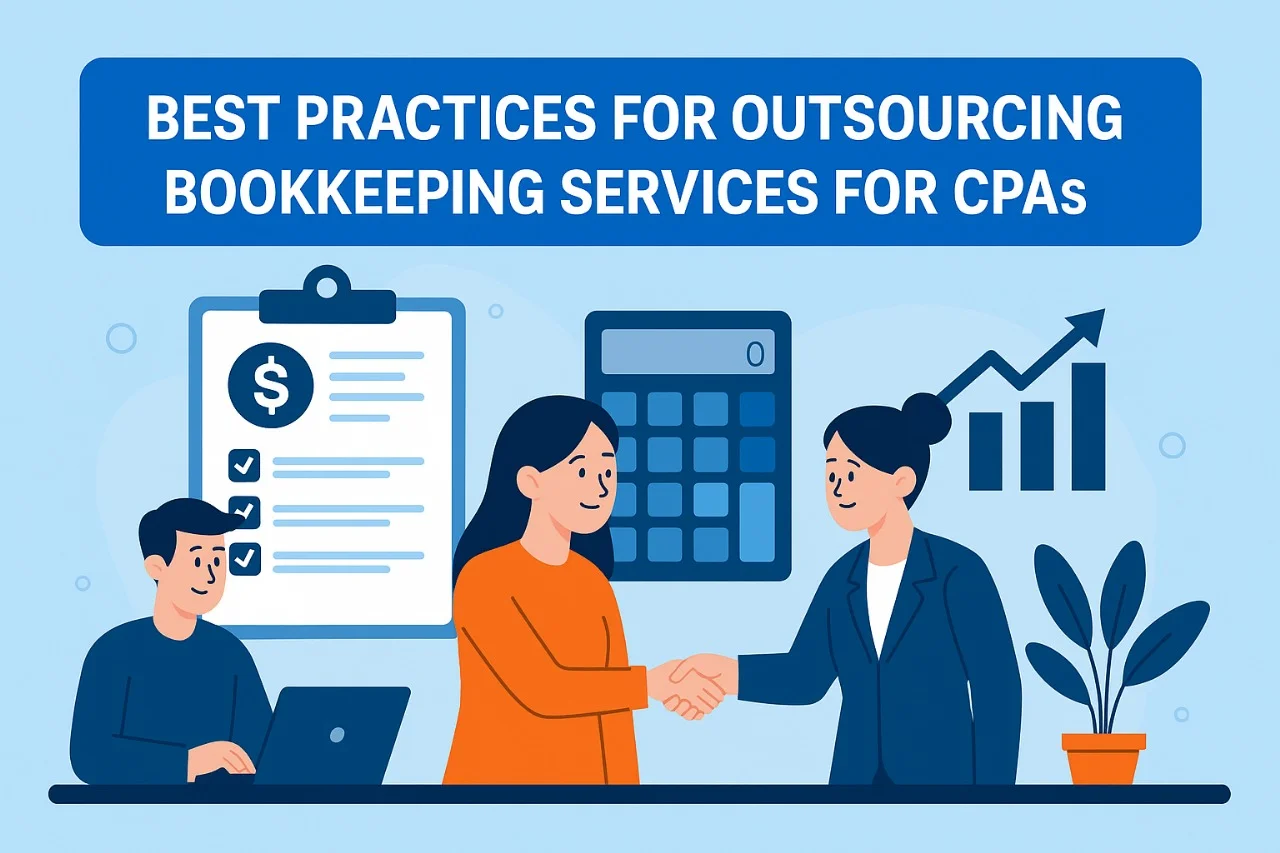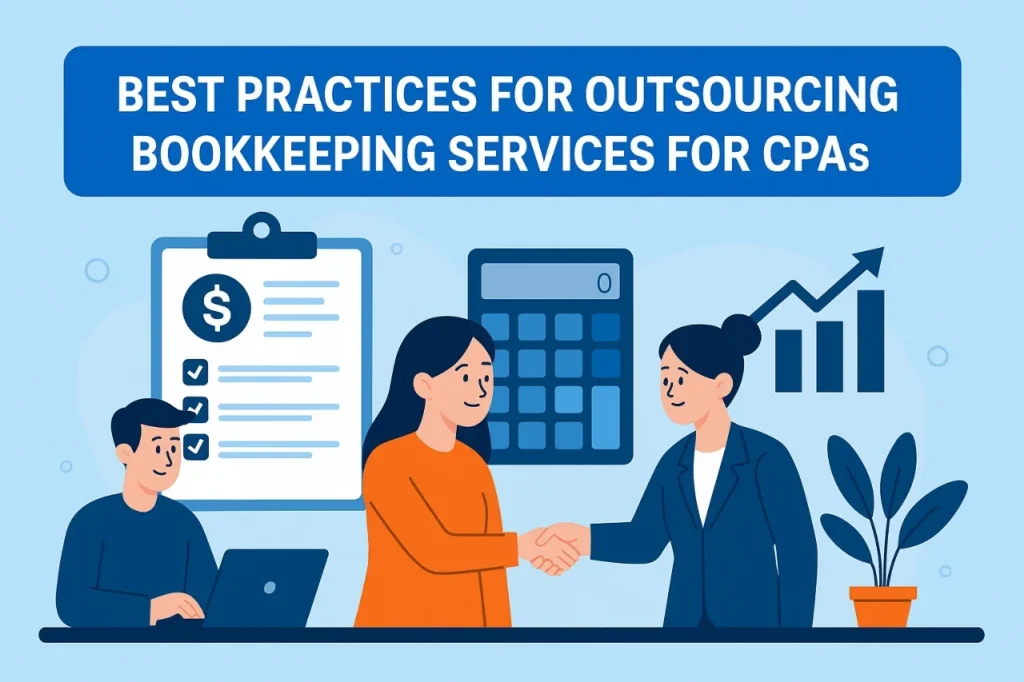Bookkeeping is essential for every CPA firm, but it can quickly become a time-consuming bottleneck. Handling transactional tasks in-house takes away valuable time that could be spent on client advisory, tax planning, and growing your practice. Outsourcing bookkeeping services to a trusted offshore partner allows CPA firms to scale efficiently, improve accuracy, and reduce costs—but only if done right.
In this blog, we share five best practices to ensure your outsourced bookkeeping arrangement delivers consistent quality, efficiency, and peace of mind.
1. Clearly Define Scope and Expectations
The foundation of a successful outsourcing partnership is clarity. Before onboarding an offshore bookkeeping team:
- Define specific services to be outsourced (e.g., transaction recording, reconciliations, accounts payable).
- Set KPIs and SLAs for accuracy, turnaround time, and reporting formats.
- Determine communication frequency and reporting requirements.
2. Choose a Partner with CPA-Specific Expertise
Not all outsourcing providers are created equal. CPA firms need partners who understand:
- US, UK, and ANZ accounting principles and tax standards.
- GAAP and IFRS compliance requirements.
- Familiarity with leading tools like QuickBooks, Xero, and NetSuite.
A partner with CPA-centric expertise ensures that deliverables meet your firm’s standards, reducing review time and errors.
3. Standardize Processes and Provide Detailed SOPs
Outsourced teams perform best when they follow well-defined processes. Create:
- Step-by-step SOPs for bookkeeping tasks.
- Templates for reconciliations, journal entries, and reporting.
- Clear rules for exceptions, approvals, and escalation.
Documented processes help maintain consistency across multiple clients and accountants, ensuring a seamless extension of your in-house team.
4. Establish a Strong Governance and Communication Model
Physical distance should not mean lack of control. Set up a structured governance framework:
- Daily or weekly task updates through shared dashboards or project management tools.
- Regular review meetings to resolve queries and improve processes.
- Clear points of contact for issue escalation.
Strong governance builds trust and keeps your firm in control of quality and timelines.
5. Prioritize Data Security and Confidentiality
Your clients’ financial data is highly sensitive. Ensure that your outsourcing partner:
- Uses secure servers, encrypted file transfers, and controlled access.
- Signs strict NDAs and confidentiality agreements.
- Follows best practices for compliance (GDPR, SOC 2, etc.).
This protects client trust and your firm’s reputation while outsourcing bookkeeping tasks.
Key Takeaway
Outsourcing bookkeeping can be a strategic lever for CPA firms, freeing up time for advisory services, improving efficiency, and reducing costs. By choosing the right partner, documenting processes, ensuring security, and maintaining strong oversight, you can build a reliable offshore bookkeeping function that scales with your firm’s growth.



